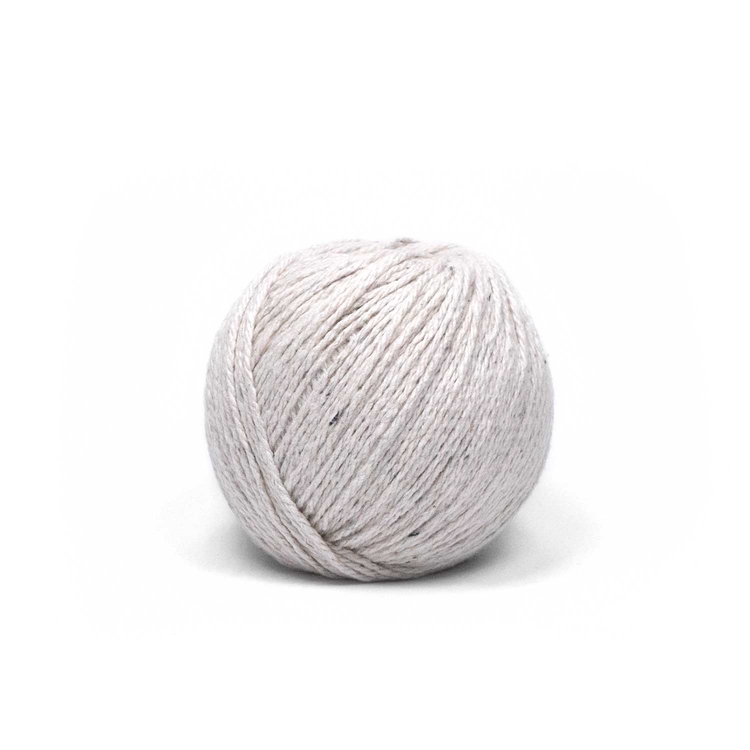Pascuali - Re-Jeans Compare Colors
Click on the preview to compare colors.

























Pascuali - Re-Jeans
Cotton
incl. VAT plus shipping costs
Delivery time: approx. 2-3 working days
Product contains - 0,05 kg
149,00 € for kg
Description
Pascuali - Re-Jeans
Re-Jeans by Pascuali is made from recycled cotton fibers. The fibers are fabric scraps from jeans production, which are dissolved and cleaned step by step back to the single fiber. After cleaning, the fibers are remixed and spun into a knitting yarn. The recycling process gives the yarn a beautiful rustic and appealing texture. The feel is reminiscent of bourette silk.
Re Jeans is excellent for light summer and autumn clothing.
Responsibility
The jeans fibers come from Italy and are remnants of jeans production that would otherwise go into the trash. Re-Jeans is dyed and spun in Portugal. Pascuali's mission is to produce sustainable and environmentally friendly yarns of particularly high quality. The production chain of each yarn is transparent to view and Pascuali visits each farm and production site himself. All fibers come from animal-friendly and environmentally friendly farms. The production is also resource-friendly and fair for all workers.
Product details
Ball: 50 g
Yardage: approx. 96 m
Needle size: 4,5 - 5 mm
Gauge: 20 sts x 28 rows = 10 cm x 10 cm
Care: 30° machine washable, dry lying flat
Raw material composition (according to EU textile labeling regulation):
95% cotton (recycled), 5% other fibers
Photos: © Pascuali
Material
| Color | 21 plum, 27 espresso, 29 pewter, 37 rose quartz, 43 lead, 45 forest, 17 magenta, 47 cocoa, 23 sand, 09 sahara, 18 ruby, 31 beige, 35 grape, 39 lilac, 41 marble, 07 lime, 33 bordeaux, 25 sage, 01 white, 05 taupe, 03 ice, 11 jeans, 13 navy, 15 neptune, 20 black |
|---|---|
| Type of yarn | Summer yarn, Vegan |
| Fiber material | Cotton |
| Weight | Light (DK) |
| Manufacturer | Pascuali |
| Yardage per 100g | 151-200m |
| Gauge (on 10cm) | 20 to 22 stitches |
| Needle size | 4 to 5.5 |
| Responsibility | controlled working conditions, sustainable production |
 Our summer yarns
Our summer yarns Perfect for summer: the Zoe shirt
Perfect for summer: the Zoe shirt Looking for a home for your needles? You can find the needle bags here
Looking for a home for your needles? You can find the needle bags here You can find all Maschenfein pattern here
You can find all Maschenfein pattern here

